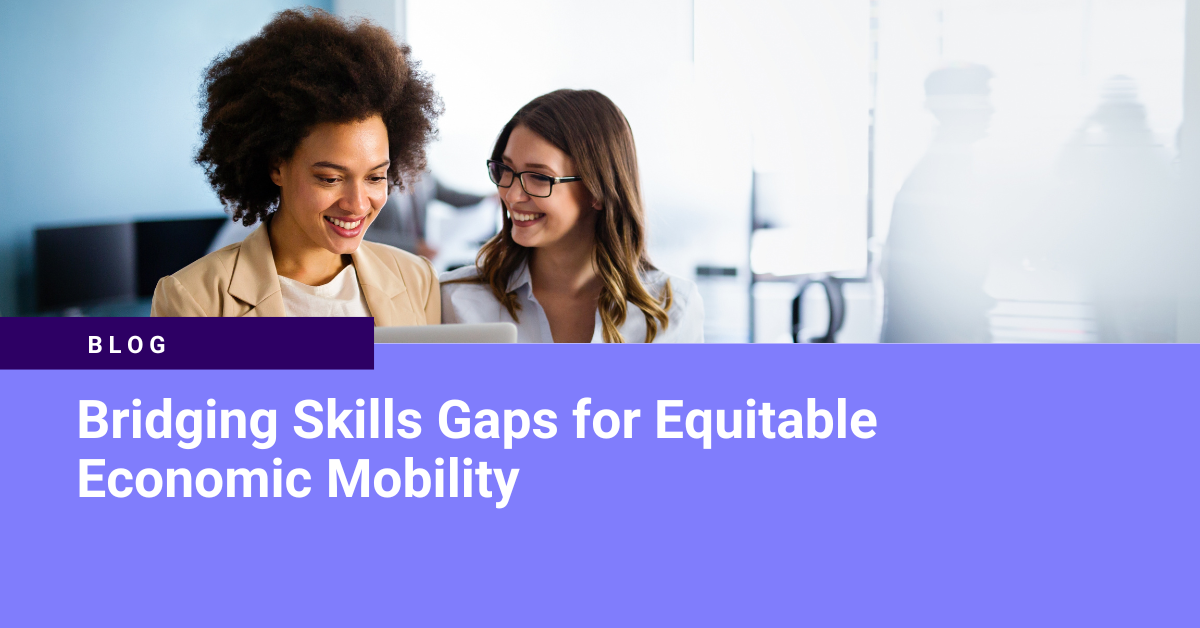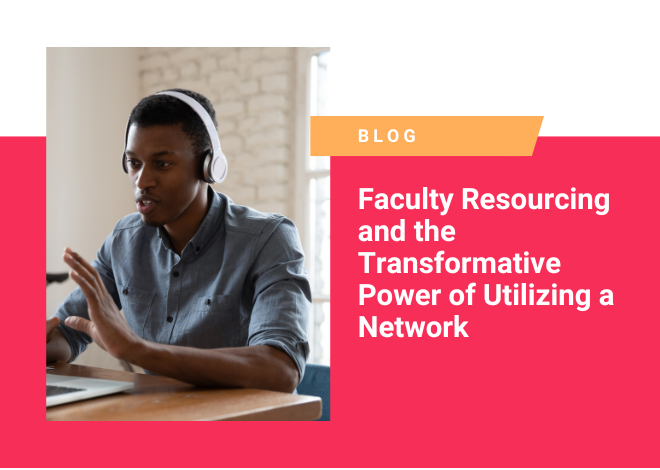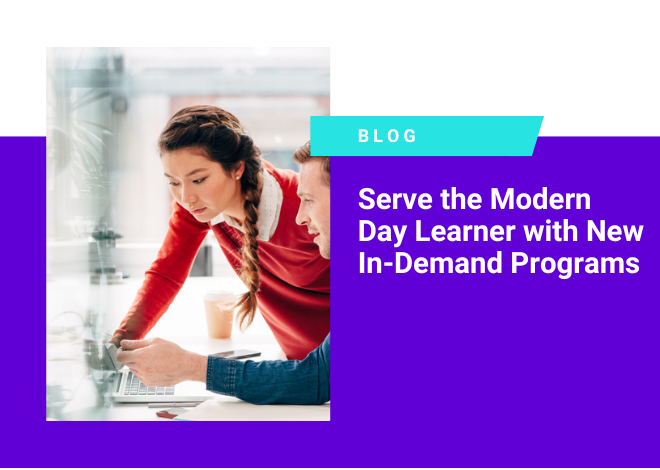Published by Acadeum
In an era in which the rapid pace of technological advancements continuously reshapes the job market, the necessity for upskilling and reskilling cannot be overstated. Recently, we spoke with Earl Buford, president of the Council for Adult and Experiential Learning (CAEL). Our conversation and this blog explore ways to foster an ecosystem in which adult learners can thrive in today’s economy, when nearly half of the enrollees in higher education are adult learners.
The Critical Role of Upskilling and Reskilling in Today’s Economy
The landscape of employment is changing, with traditional careers evolving or becoming obsolete, and the emergence of new roles that demand a different set of skills and knowledge. In this context, upskilling (learning new skills) and reskilling (learning new skills for a different job) are not just beneficial but essential for workers aiming to stay relevant and advance in their careers.
By embracing lifelong learning, workers can adapt to the changing demands of the workforce, ensuring their economic mobility and the prosperity of the economy at large. Buford highlighted the importance of accessible and efficient educational pathways by emphasizing that the goal is to “make the on-ramp much easier for learners and workers.”
Aligning Education with Industry: A Pathway to Prosperity
One of the most effective strategies to bridge the skills gap is aligning education with industry needs. This alignment ensures that the skills and knowledge imparted to students are directly applicable and valuable in the workplace.
A holistic approach to education that includes both technical and soft skills can prepare learners for success in the modern workforce. Buford reflected on the traditional educational approach by saying, “We often see the skills gap problem framed in a competing economy of STEM versus soft or essential skills.”
Acadeum is helping colleges and universities deliver in-demand certifications to bridge the skills gap with Acadeum Skills Marketplace. The learner interest in upskilling, reskilling, and bolstering overall employability creates a large opportunity for institutions to target a wide variety of learner populations and create new and diverse enrollment paths to certificate and degree programs with noncredit learning opportunities.
By fostering a close collaboration between educators and industry leaders, there is the potential to create curricula that are responsive to the evolving demands of the job market and thereby enhance the employability and economic mobility of graduates.
Credit for Prior Learning: Linking Experience to Academic Achievement
The recognition of prior learning (RPL) is a crucial component of adult education, and it allows learners to receive academic credit for learning achieved outside traditional educational settings. This approach not only accelerates the educational journey for many adult learners but also validates their existing knowledge and skills, boosting their confidence and motivation.
Buford highlighted the importance of this and stated, “It’s a natural bridge between higher education and employment communities and establishes a really valuable pipeline of talented individuals for education institutions.” By leveraging RPL, educational institutions can provide more personalized and efficient pathways to qualification and career advancement.
Empowering Adult Learners: The Intersection of Technology and Education
The digital revolution has transformed the landscape of education, offering unprecedented opportunities for adult learners to access learning materials, courses, and support online.
This technological advancement has been instrumental in democratizing education, and it has made education more accessible and flexible to fit the diverse needs of adult learners. By embracing digital platforms and online learning resources, educators can reach a wider audience, providing learners with the tools they need to succeed in their careers.
Strategic Partnerships Between Educators and Employers
The cultivation of strategic partnerships between educators and employers is fundamental to ensuring that educational programs are aligned with industry needs and that learners are equipped with the skills required to thrive in the workforce.
These partnerships can take various forms, from advisory roles and curriculum development to internships and job placements. Through these partnerships, educators can gain insights into the evolving needs of the industry, while employers can access a pool of skilled and knowledgeable candidates.
Advancing Career Pathways Through Innovative Learning Solutions
The future of education lies in its ability to provide innovative learning solutions that cater to the diverse needs of adult learners. These solutions must not only address the skills gap but also support the career pathways of modern-day learners and reach new populations of learners through strategic offerings.
By developing flexible, relevant, and accessible educational programs, we can empower adult learners to achieve their career goals and contribute to the growth and prosperity of the economy. The journey toward equitable economic mobility for adult learners and workers is paved with challenges, but it is also brimming with opportunities.
Through the collective efforts of educators, industry leaders, policymakers, and organizations like CAEL, we can forge a future in which every individual has the tools and support needed to thrive in the workforce. As we embrace innovation, collaboration, and a commitment to lifelong learning, we can narrow the skills gap and build a more inclusive and prosperous society for all.
What are you waiting for? As part of the largest higher education network, you can take advantage of opportunities today to bridge skills gaps and support economic mobility for students. Connect with us today to strategize about a plan specific to your department or institution.



